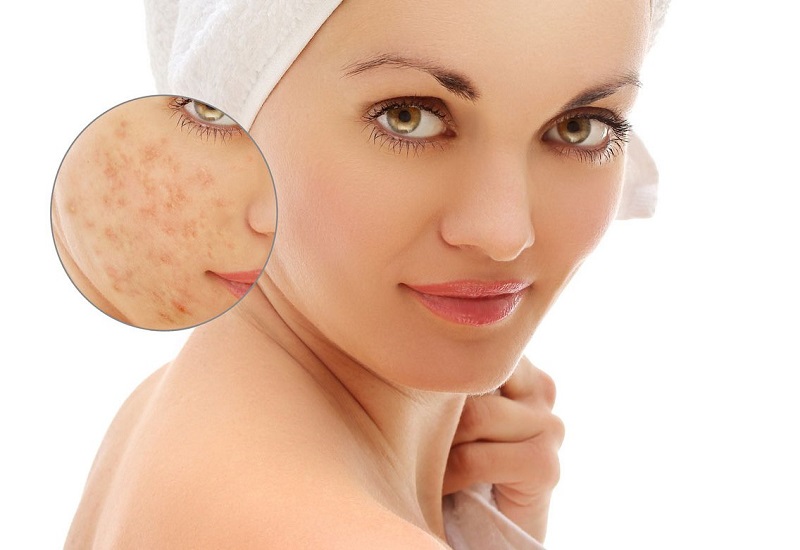Pimple removal treatments in Riyadh encompass a wide array of options, reflecting the city's advanced dermatological care. Discover the most effective pimples treatment in Riyadh to achieve clear, healthy, and glowing skin with the help of expert dermatologists. Effective management of pimples necessitates a tailored approach, considering the individual's skin type, the severity of the condition, and the underlying causes. Here's a comprehensive overview of what you need to know:
Understanding Pimples
Pimples, a common skin manifestation, arise when hair follicles become clogged with oil (sebum) and dead skin cells. This blockage creates an environment conducive to bacterial growth, leading to inflammation, redness, and the formation of pustules or papules. Several factors contribute to pimple development, including:
- Hormonal fluctuations: Increases in androgens, such as testosterone, can stimulate sebum production, making pimples more prevalent during puberty, menstruation, and pregnancy.
- Genetics: A family history of acne may predispose individuals to developing pimples.

- Bacteria: Cutibacterium acnes (formerly Propionibacterium acnes) is a bacterium that resides on the skin. In clogged hair follicles, these bacteria multiply, triggering inflammation.
- Oil production: Excessive sebum production can contribute to the blockage of hair follicles.
- Dead skin cells: If dead skin cells are not shed effectively, they can accumulate within hair follicles, leading to congestion.
- Medications: Certain medications, such as corticosteroids, lithium, and some anticonvulsants, can exacerbate acne.
- Diet and Stress: While not direct causes, some studies indicate that certain dietary factors and stress can worsen acne.
Treatment Options
Riyadh's clinics offer a variety of treatments, including:
- Topical Treatments:
- Over-the-counter (OTC) medications: These are often the first line of defense for mild pimples. Common active ingredients include:
- Benzoyl peroxide: Reduces bacteria and inflammation.
- Salicylic acid: Helps to unclog pores by exfoliating dead skin cells.
- Prescription medications: For more persistent or severe pimples, a dermatologist may prescribe:
- Topical retinoids: Such as tretinoin, adapalene, and tazarotene, these medications help prevent the formation of new pimples by increasing cell turnover and reducing inflammation.
- Topical antibiotics: These help to control bacterial growth and reduce inflammation.
- Combination medications: Some products combine retinoids with benzoyl peroxide or antibiotics for enhanced efficacy.
- Oral Medications:
- Oral antibiotics: These may be prescribed for moderate to severe acne to reduce bacterial colonization and inflammation.
- Isotretinoin: A powerful medication for severe, nodulocystic acne that has not responded to other treatments. It works by reducing sebum production, shrinking sebaceous glands, and preventing follicular plugging. Requires careful monitoring due to potential side effects.
- Hormonal therapy: For some women, oral contraceptives or anti-androgen medications can help regulate hormone levels and improve acne.
- Procedures:
- Chemical peels: These involve the application of a chemical solution to the skin, which exfoliates the top layers and can help to unclog pores, reduce inflammation, and improve the appearance of acne scars.
- Laser and light therapy: Various light-based treatments target acne-causing bacteria, reduce sebum production, and promote skin healing.
- Microdermabrasion: This procedure uses a device to exfoliate the skin's surface, helping to unclog pores and improve skin texture.
- Microneedling: This technique involves creating tiny punctures in the skin, which can stimulate collagen production and improve the appearance of acne scars.
- Corticosteroid injections: Injections of corticosteroids directly into inflamed pimples can help to reduce swelling and pain.
Important Considerations
- Individualized Treatment: The most effective approach to pimple removal is tailored to the individual's specific needs. A dermatologist can assess the skin condition, identify contributing factors, and recommend the most appropriate treatment plan.
- Consistency and Patience: Many acne treatments take time to produce noticeable results. It is essential to follow the prescribed regimen consistently and be patient.
- Potential Side Effects: Some acne treatments can cause side effects, such as skin irritation, dryness, redness, or increased sun sensitivity. It is crucial to discuss potential side effects with a dermatologist and follow their instructions carefully.
- Long-Term Management: Acne is often a chronic condition that requires ongoing management. Even after pimples have cleared, it is important to maintain a good skincare routine to prevent future breakouts.
- Skincare Routine: In addition to medical treatments, a consistent skincare routine can help to improve acne. This includes:
- Gentle cleansing: Use a mild, non-comedogenic cleanser to wash the face twice daily.
- Non-comedogenic products: Choose skincare and makeup products that are labeled "non-comedogenic," meaning they are less likely to clog pores.
- Avoid picking or squeezing: Picking or squeezing pimples can worsen inflammation, lead to scarring, and increase the risk of infection.
- Sun protection: Protect the skin from sun exposure by using a broad-spectrum sunscreen with an SPF of 30 or higher. Certain acne medications can increase sun sensitivity.
By understanding the causes of pimples and the available treatment options in Riyadh, individuals can work with a dermatologist to develop an effective strategy for achieving clearer skin.




Comments